If creating career pathways for your organization feels daunting, it’ll be a relief to know that you’ve probably already started this work without realizing it!
Talent is an ecosystem, meaning that all the components are interconnected.
The tools you use to recruit and hire team members are closely related to the tools you use to develop them, which are closely related to the tools you use to assess them.
In other words, the skills and expertise you’re hired for are the same ones you’re developed in and assessed on.
This interconnectedness helps organizations become more equitable and inclusive because there’s a consistent, transparent vision of success.
Hired someone recently? You’ve got the start of career pathways AND performance management

If you don’t have career pathways or performance management in place yet, it might feel daunting to even get started. The good news is that because everything in talent is interconnected, you most likely have the beginnings in place already!
Hired someone recently? You probably created a competency-based rubric or at least wrote up a job description with a list of skills and expertise that this new hire must possess.
That rubric or job description can become the start of career pathways and a performance management system. Not complete tools by any means, but a start.
If you can define the competencies, skills, and expertise required to do one role well, you can extrapolate how those competencies, skills, and expertise map to other roles throughout the organization.
Before we get into exactly how to do this, let’s do a quick terminology review.
What are career pathways? An evolved career ladder that is built on the idea that there are varied ways to get to a given role.
What is performance management? A system that helps managers monitor and evaluate employees’ work.
What are competencies? The knowledge, skills, abilities, and behaviors that contribute to an individual’s organizational performance.
Examples: communication, time management and organization, complex project management, interpersonal skills, mission alignment, and content area expertise.
How to leverage a job description or rubric as the start of important talent systems

Let’s say you recently hired a new manager. As part of the recruitment and hiring process for that manager, you probably created a competency-based rubric or at least a job description with a list of skills and expertise this new hire must possess.
Review that rubric or list of skills & expertise. Consider: Which of those competencies are relevant for more junior team members? Which are relevant for more senior ones? What do the different levels of proficiency look like?
For example, if the new manager needs to be able to manage complex projects, what does it look like for more junior team members to demonstrate a growing ability to manage complex projects? They probably don’t need to demonstrate the same level of mastery as the manager would, so what does a beginning proficiency look like? What does a more advanced level of proficiency look like for more senior team members?
Repeat this process for at least 4 more competencies.
When you’ve done this, you’ll have built out a rough first draft of career pathways that clarifies the expectations for each level in the organization. You can use this draft tool as the start of your performance management tool too by adding a rating scale so employees can rate themselves and managers can rate their direct reports.
The full process of building out career pathways and a performance management tool is much more involved, of course, but this is a good start!
Need more help? If you’d like support and/or coaching in building out your organization’s career pathways, performance management system, or any other part of your organization’s talent ecosystem, we’re happy to help! Book a free, no-obligation, 30-minute call so we can get started.





